As the Russian squadron of the Sultan saved. Bosporus Expedition 1833
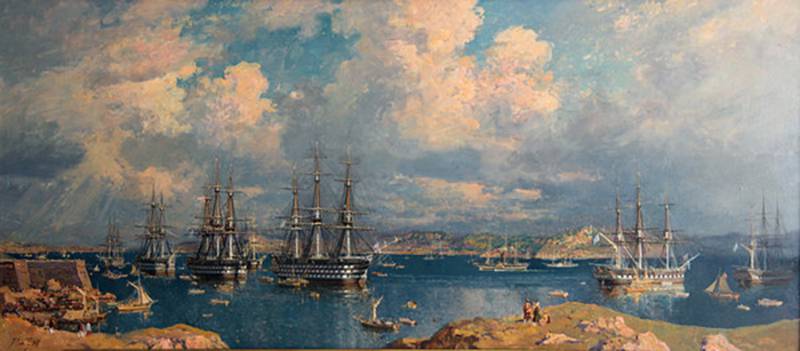
The 1832 summer of the year crawled into Topkapi Palace ominously stifling and alert. The owner of these walls has ceased to feel that blissfully serene feeling of peace, which helps to relax and focus on something abstract, for example, on reflections on European literature or painting, the love for which was instilled in him by his mother. It seemed that neither large, gracefully executed fountains, nor tastefully broken gardens could distract and give lightness to the thoughts of the thirtieth ruler of this palace, the ancient city and great country. Countries, most of which no longer obey him. The nightly coolness did not bring the expected relief - the old palace was full of shadows and memories: the sultans and their wives, viziers, pasha, eunuchs and janissaries, strangled and slaughtered in numerous coups, assaults and conspiracies. Among these shadows was the elder brother Mustafa IV, who was killed according to his, Mahmud II, the order of the year 1808, which was already distant in autumn. But the sultan feared the living more than the dead - only the living can come to you with a silk cord or a bare blade. And Mahmud II diligently drove from his obsessive anxiety about an imaginary visitor - a majestic old man with a good-natured voice of a candy seller and a death grip of an overlord. The army of the Egyptian pasha, Muhammad Ali, marched on Istanbul, and there was nothing between it and the capital except for the Will of Allah.
Stop feeding Istanbul!
In the first half of the XIX century, the Ottoman Empire already lived more memories of their own greatness, rather than using it. A series of wars lost over the past 120 years not only significantly reduced the territory of the Brilliant Ports, but also shook all its internal state bodies. The once mighty army turned into just one great eastern antiquity and if not for the reforms begun by Selim III and continued by Mahmud II, it would finally become an anachronism. Constantly shrinking finances - the treasury pitted with debts - had long ago acquired a chronic status and were inherited from one sultan to another. The state structure of the empire itself became fragile and loose: the farther from the capital, the cleaner and freer the air seemed to local pasha. Local authorities began to feel more confident and behave more arrogantly. And the richer the region was, the more solid and conscious this confidence was.
At the beginning of the XVIII century. Algeria and Tunisia became virtually independent - they needed to be part of the Ottoman Empire in order to protect their large pirate business. The once-vast European possessions shrank to the Balkan Peninsula, where hotbeds of discontent and open armed uprising burned and smoldered in various places. At first, the Serbs with their leader Karageorge brought acute anxiety, gaining broad rights to autonomy as a result of a long guerrilla struggle and active assistance to Russia. When, finally, the thick dust of the Napoleonic wars subsided slightly, it was the turn of Greece. In 1821, the war for its independence began, also known as the Greek Revolution.
There were still loyal, at first glance, regions, but because of their economic self-sufficiency, seditious thoughts began to sneak into the heads of whose heads. First of all, this concerned Egypt, the grain of which (and its quantity) played the most important role in providing the empire with food. This Turkish breadbasket was run by Mohammed Ali, who can hardly be called an ordinary person. And the wrong, from the point of view of the sultan's court, doubts, reflections and unexpected conclusions not only long ago leaked into the head crowned with an expensive turban, but also created a strong springboard there. After weighing all the pros and cons, the Egyptian Pasha rightly decided that living under the hand of the powerful padishah is good, of course, but without metropolitan guardianship life will become much more free, prosperous and fair. What happened sooner or later happens in many empires, when their strong provinces begin to consider themselves self-sufficient and want to get rid of the harsh and demanding power of the capital.
From merchants to rulers - steps
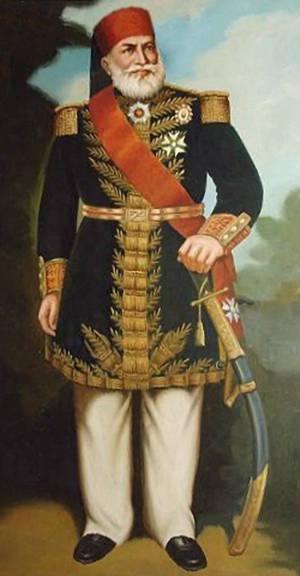
Born future empire shaker in 1769, Macedonia. His father was a small landowner, Albanian by nationality. The boy was left without parents early and was accepted for upbringing in a strange family. Growing up, Muhammad Ali opened a small tobacco shop to gain economic independence. And to succeed the young man in the fertile field of commerce, if not for the time in which he lived. The end of the 18th century was marked by turbulent and impetuous events. Europe was in a fever from the French Revolution, which very quickly grew into a series of bloody wars. This powder hurricane spun many countries in its whirlwinds and, of course, could not bypass the Ottoman Empire with its attention.
Realizing his Eastern project, Napoleon Bonaparte with the expeditionary corps landed in Egypt, intending to strengthen the position of France in the Middle East and, pushing rival England off, finally paving the road to India. Since Egypt was part of the Omani Empire, it became automatically involved in the war. Participation in hostilities at times is extremely conducive to career growth, if, of course, lucky. Leaving the trade craft, Muhammad Ali went to military service and, as part of the Albanian contingent, went to 1798 in the army in Egypt. Uncommon personal qualities, courage, tempered character, intelligence, and a certain amount of luck quickly raised the former merchant through the ranks. When the British, allied to the Turks, left Egypt, chaos began in the country. An attempt by a governor appointed by Istanbul to reform the local armed forces led to a rebellion that caused the pseudo-transformer to flee. The epicenter of the performance was one of the regiments formed from Albanians and part of the Turkish expeditionary forces. The general confusion in restoring order spilled a new commander of this unit upstairs, finding the right place at the right time. He was Mohammed Ali. In 1805, Istanbul appoints him governor of Egypt.
The seething activities at the Sultan’s court of the French ambassador, General Sebastiani, are changing the direction of the empire’s foreign policy. After Austerlitz, Jena and Auerstedt, no one surrounded by Selim III doubted who was now the main military force in Europe, and at the same time as the government for the old and powerful enemy - the Russians. Already in 1806, relations with France, which was recently located in the enemy camp, were reformatted, a rapid cooling was taking place with Russia and with England. The war soon begins with the British. After the unsuccessful Dardanelles expedition, Admiral Duckworth, too expensive for the royal the fleetMisty Albion struck elsewhere, very vulnerable to his new adversary. On March 16, 1807, a five thousandth British expeditionary force landed in Egypt and occupied Alexandria. The opportunity was taken to cut off grain supplies to the Turkish capital and other regions of the empire and make the Turks more susceptible to the voice of reason with a clear English accent. However, the hope of repeating the Napoleonic epic in miniature did not materialize. Muhammad Ali, being the governor of Egypt, was able to quickly gather the troops at his disposal and besiege Alexandria. The siege was favorable for the Egyptians - the English sorties were successfully neutralized, and the garrison was completely blocked. When the position of the “red uniforms” became more and more hopeless, the British were forced to agree with Muhammad Ali and in August 1807 evacuate their troops from Egypt. However, the Anglo-Turkish conflict did not develop into a large-scale confrontation and, given the traditional interests and strong political positions of England in this region, was further considered in London as a small misunderstanding.
Muhammad Ali began to reform and modernize Egypt — under his rule, Alexandria was again connected to the Nile by the Mahmudiya Canal — and this ancient and once magnificent city made him its residence in 1820. More than once confronted by Europeans, not only during a pacifying conversation over a cup of coffee, but also in battle, Muhammad Ali recognized the superiority of the Western military organization over the increasingly archaic Turkish army. In his entourage there were many immigrants from Europe, primarily the French, whose governor considered martial art magnificent. Pasha did not forget about ordinary tax payers: many schools were opened in Egypt, financial and administrative reforms were carried out. Mohammed Ali led a rather active foreign policy. With it in 1811 – 1818. The Arabian Peninsula was taken under control.
Like any energetic leader, whose activities are not limited to the eloquent shaking of the air, the waste of public funds for treatment and entertainment, and new achievements in the construction of modest palaces, Muhammad Ali soon began to cause justified concern in Istanbul. In the capital of the empire, they saw that Egypt’s dependence on the center of Turkey was becoming more and more conditional and therefore dangerous. Mahmud II also played a serious role in reformism, but this process went extremely hard, slowly and with a distinct creak. Especially in the military. Muhammad Ali in this field has achieved where both large and, most importantly, effective results. Paraphrasing a quote from one remarkable film, everything was burning in Istanbul, and it worked in Alexandria. Those who expressed excessive doubts about the expediency of change, intrigues and tirelessly inserted sticks into the intensively working reform mechanism, the omnipotent governor, who increasingly began to resemble an independent ruler, eliminated without too much fuss. And this did not prevent him from indulging in thoughtful conversations with foreign guests with the most peaceful air. While in Istanbul, the number of well-wishers and people sympathizing with them, diligently increasing the volume of compromising materials for too independent a pasha, was growing, very serious events began to occur in the empire itself, which could lead to very sad consequences without proper response. And it turned out that without the help of Muhammad Ali with his powerful army and navy can not do. In 1821, the ancient land of Greece broke out in the conflagration of the people's war of liberation from the Turkish yoke.
Greek Flame and Pasha's Offense
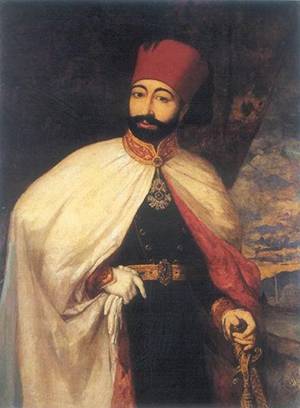
The moment for the speech was chosen better than ever: dissatisfaction with the policies of Mahmud II increased, Ali Pasha Yaninsky openly ceased to submit to Istanbul. It is interesting that one of the first leaders and initiators of the uprising was a Russian general, a Greek by nationality, Alexander Konstantinovich Ypsilanti. Soon the uprising spread to all of Greece, including numerous islands. The scale of the Greeks' speech was expanding, as were the repressions against them. In Kandia, on the island of Crete, Turkish soldiers killed the metropolitan and five bishops right in the altar of the cathedral. By order of the Sultan on Easter Wednesday 22, April 1821, Patriarch Gregory V was hanged at the gates of his residence.
Greek corsairs seized Turkish ships and destroyed their crews. The uprising in economic terms hit the southern ports of Russia, primarily in Odessa. Most of the commercial ships coming there belonged to the Greeks, who were subjects of Turkey and the Russian Empire. Now, under the pretext of fighting military smuggling, the Turks intercepted, robbed, and even drowned Greek ships, not paying much attention to their nationality. Due to the uprising and the lack of food in Istanbul, the Sultan imposed an embargo on the transportation of grain and other goods through the straits, which further affected Russian trade. The Russian ambassador to the Turkish court, Count G. A. Stroganov, repeatedly protested, which were simply ignored. In July, 1821, which exhausted the store of patience and a list of formulas for strong objections, the count left the capital of the Brilliant Porta with all the staff of the embassy.
In Russia itself, public opinion was naturally on the side of the rebels, but Alexander I met the Greek revolution without enthusiasm, refused to help, arguing that the Greeks rebelled against their legitimate ruler. Only with the accession to the throne of Nicholas I, did Russia withdraw from the policy of sympathetic sighs and began to assist the rebels. In April 1826, the Anglo-Russian Treaty of St. Petersburg was signed, under which Greece received autonomy, but remained under the supreme jurisdiction of Turkey. Soon, France joined the agreement. In 1827 in London, an agreement was signed on the creation of an autonomous Greek state. The Ottoman Empire was offered mediation. The matter remained for small: to persuade Istanbul to negotiate. But with this item it was not easy. Because of the widening uprising and the outbreak of the war with Iran, the Turks were faced with the natural problem of a shortage of troops.
It was then that Istanbul recalled Muhammad Ali’s “strategic” Pasha with his first-class armed forces. In 1824, Mahmoud II was forced to turn to the Egyptian ruler for help in restoring the sultan's order in Greece, in exchange for the son of Muhammad Ali Ibrahim Pasha promised the honorable and restless post of governor of Peloponnese. Egypt did not leave the "center" in trouble, and in February 1825, the Egyptian fleet delivered an expeditionary force to Methoni Bay. Having captured a number of important fortified points, the army of Ibrahim Pasha soon took control of the entire Peloponnese. After a long siege of 26, the fortress of Mesolongius, which was at the entrance to the Gulf of Corinth, fell (it became the final destination for Lord Byron a week ago), and a year later Athens was taken. The actions of the Egyptian expeditionary corps were accompanied by mass repressions of the population, actions of intimidation and merciless massacres. In the hands of the rebels remained a very small area.
Seeing success in the process of suppressing the uprising, Sultan Mahmoud II took heart and refused any mediation assistance from Russia and the Western powers. He overestimated his strength and misunderstood the situation. The Greek uprising had long ago outgrown the framework of the common popular rebellion, which was so rich story Turkey The events in the Balkans attracted the attention of not only the Russian, but also the Western European public. For the Greeks, collecting money weapon, in the ranks of the rebels fought numerous volunteers. In addition, there was an economic interest: France was interested in stable trade relations with Greece.
Understanding that only with diplomatic attacks not to stir up even a vale of peacock feathers in the sultan's palace, the temporary allies formed a squadron and sent it to the shores of the Peloponnese. Ibrahim Pasha’s ignorance of the ultimatum of the three admirals — Russian, English and French — resulted in the 20 of October 1827 in the city of Navarino in October, in which the Turkish-Egyptian fleet was destroyed. Mahmoud II considered this tragic event for Turkey interference in internal affairs and ordered to prepare for war with Russia. The fact that when Navarin fought also ships under the flag of England and France, the padishah decided wisely not to notice. In April, 1828 was a war between Russia and Turkey.
The actions of the Greek rebels were by that time unsuccessful, and the French expeditionary force of General Meson arrived in Greece itself for peacekeeping purposes. The French occupied a number of key areas and, in partnership, suggested to Ibrahim Pasha to collect a round table and return to Egypt. The fighting against Russia evolved, by the most modest definition, was not very successful, and the Turks did not want to quarrel with France, so that the Egyptian expeditionary corps was soon evacuated. According to the Adrianople Peace Treaty of 1829, which crowned the next Russian-Turkish war, Istanbul recognized the autonomy of Greece.
The Egyptian ruler Mohammed Ali was already an elderly man by this time, but, unfortunately for the Sultan, the memory knot tied by the Egyptian Pasha was still intact. The old politician remembered under what circumstances Mahmud II appealed to him for help, and in any way this appeal was like a drowning man’s prayer for a life preserver. Since the post of governor of the Peloponnese promised to his son Ibrahim Pasha was no more accessible, meaningful and honorable than the governorship on the Moon, Muhammad Ali was counting on something corresponding to his efforts to preserve the territorial integrity of the empire.
After thinking about the difficult situation, the sultan took and awarded the Egyptian ruler the title of pashalyk (governor-general) of the island of Crete. Muhammad Ali was outraged by such a “generosity” - this appointment was all the same as if, instead of the expected hot Arabian horse, you were solemnly presented with a viciously humming hornet’s nest in a golden case. For his work, the de facto ruler of Egypt hoped to get into control the rich Syrian provinces, which he modestly asked Mahmud, but instead of them was awarded a restless island with the local population seething with hatred for the Turks. Muhammad Ali was greatly offended and made the appropriate conclusions - and, of course, not in favor of the central government. What was not given to him voluntarily could have been taken by himself, at the same time teaching the capital snobs, led by the Sultan himself, a good lesson. Everything steadily slid into a simple situation when the one who has more guns is right.
In October 1831, the army of Ibrahim Pasha, the son of the Egyptian ruler, entered Syria. They also found a specious excuse: a personal quarrel between Muhammad Ali and Acre's pasha. The army consisted of 30 thousand people with 50 field guns and 19 mortars. Jerusalem and Gaza were taken without much difficulty, and the siege of Acre soon began - from land and from the sea, because after the Navarin the Egyptians rebuilt their fleet. In Istanbul, they began to show an ever-increasing concern - the situation had long since passed the brink of a local get-together, and the features of a civil war began to emerge clearly and threateningly. Mahmud II declared Muhammad Ali and his son Ibrahim Pasha to be rebels, deprived of all his posts and outlawed. Hussein Pasha, loyal to the throne, was appointed to replace the rebel, who was ordered to gather an army and oppose Ibrahim.
While Hussein Pasha was engaged in organizing a punitive expedition, in May 1832 fell Acre, and in June the Egyptian troops entered Damascus. The offensive to the north was rapidly continuing - organized in haste, the army of the Syrian governor was defeated, and in July Ibrahim Pasha entered Antioch. Thus, the whole of Syria was in the hands of the Egyptians. In Istanbul, they were scared to no joke - in order to curb the extensive anti-government activities of Muhammad Ali, a serious-sized army was needed, which was still to be gathered into a fist and organized.
The summer in Istanbul was really hot. People discussed with might and main news - Sultan-reformer recalled a lot. His assets included not only transformations in different areas of the Ottoman Empire, not everyone understood and accepted, but also the brutal defeat of the Janissary Corps and the war lost to the Greeks and Russians. Anyway, maybe this lover of all western is not a real sultan? And the real one whose son goes to the capital? The autumn of 1832 was full of alarming expectations. Ibrahim crossed the Taurus Mountains and in November captured the heart of Asia Minor, the city of Konya. In December, a decisive battle took place between the 60-thousandth army, led by the great vizier Rashid Pasha himself, and the Egyptian troops of Ibrahim under the same Horse. Despite the balance of forces between the parties (the Egyptians were no more than 15 thousand), the government forces were defeated, and the Vizier got into captivity along with 9 thousand of his soldiers. The road to the capital was open, and the Egyptian fleet took control of the approaches to the Bosphorus. The Sultan did not have time to worry, it was necessary to think about immediate anti-crisis measures.
Russians are coming!
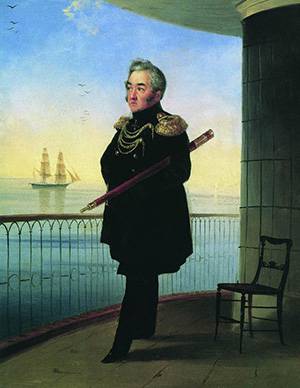
There is no exact information whether at that moment Muhammad Ali had the intention to expand his authority far beyond the boundaries of becoming increasingly conditional dependence on Istanbul, but his son Ibrahim Pasha insisted that he minted his own coin, and the name Muhammad Ali was mentioned in Friday prayers. Like other wise rulers, who did not reveal their plans for the time being, the old bearded man tactfully kept his mouth shut. The inconsolable Mahmoud II, meanwhile, rushed for help to the traditional friends and partners of the Ottoman Empire, England and France. Here he was bitterly disappointed. Like little Flour, who asked the merchants at the food market and received only sympathetic sighs and cuffs in response, the Turkish sultan spent time in vain to invite and meet with Western ambassadors. The British did not seem to mind, but when the question reached the then foreign minister, Lord Palmerston, he refused to help, citing a reduction in the cost of the army and navy, and expressed regret. The French almost openly supported Egypt. Paris seriously counted on the support of Muhammad Ali in his claims to Algeria and Tunisia.
And then the sultan was forced to seek the help of another great power, which for a long time was for many the Turks synonymous with the word "enemy". In St. Petersburg, they foresaw a similar roll and were ready for it. Back in the fall of 1832, seeing the ugliness he made there with an indefinite ending spread in the southern neighbor’s house, on the instructions of Nicholas I, Alexander S. Menshikov, Chief of the Main Naval Staff, ordered the Black Sea Fleet Commander Admiral A. Greig to prepare a squadron for a possible campaign to Constantinople.
24 November 1832 The Russian imperial envoy in Istanbul, AP Butenev, was sent an imperial prescription, stating that if the Turks turned to Russia for help, the envoy could require Greig to send a squadron to the Ottoman capital Porta immediately. The Sultan was an old enemy and neighbor - his actions and intentions were known and predictable. And what will happen to Turkey in the event of the fall of Mahmud II, it was also not difficult to predict. There were serious concerns about the possibility of the passage of the Russian ships through the straits and the open intervention of the Western powers, with all the ensuing consequences.
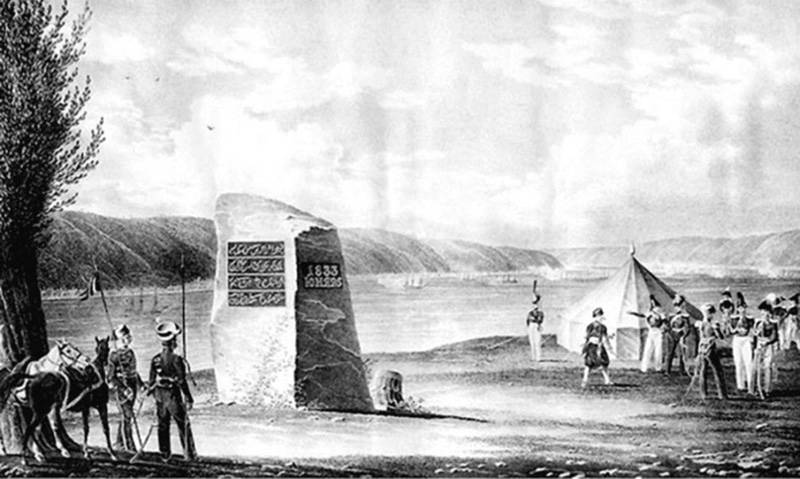
21 January 1833 The official Turkish authorities appealed to Russia for help: to send not only a squadron to Istanbul, but also an expeditionary detachment to 3 – 5 thousand people. Ibrahim Pasha, pulling up the rear of his army, has already marched to the capital. 1 February 1833. Rear Admiral Lazarev, who directly commanded the squadron, received an order from Butenev to go to Istanbul. February 2 four battleships, three 60-gun frigates, one corvette and one brig left Sevastopol. Because of the headwinds, Lazarev approached the 8 February mouth only.
Turks instead of the expected joy began to behave strangely and confusing - otherwise they would not be Turks. At first, the Russians were asked not to enter the Bosphorus before receiving permission from the Sultan, but Lazarev simply ignored this ridiculous request and anchored in view of the British and French diplomatic missions. Immediately, like gins from a bottle, representatives of Mahmud II appeared, who began to reiterate something about the alleged negotiations between the Sultan and Muhammad Ali and that the Russians should go to the parking lot in Sizopol so as not to annoy the Egyptians and not interfere with the process peace settlement. Lazarev from the right sources knew that the gentlemen in turbans and fezes blatantly lie, and the reasons for such amazing metamorphoses are very prosaic.
As soon as the English and French envoys learned about the appearance of the Russian squadron, there was no limit to their outrage. These gentlemen raced to the Sultan to express regret and persuade them to refuse Russian help. Lord Palmerston did not speak about saving anymore - nothing stimulates the European economy more than St. Andrew’s flag on the Bosporus. While diplomatic passions were raging, agents of Muhammad Ali revolted in Izmir - Egyptian troops soon landed there. This fact caused another equally surprising transformation in the behavior of the padishah and his entourage - he now urged to send ground troops to protect his capital and person.
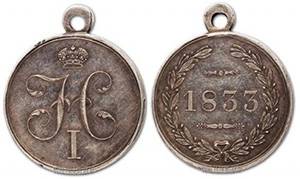
March 24 The second squadron of the Black Sea Fleet, commanded by Rear Admiral M. N. Kumani, came to Istanbul as part of the 1833 battleships, the 3 frigate and the 1 transports with the troops. On April 9, the third squadron joined the forces - 2 battleships, 3 bombing ships and 2 transports. Now Russian troops in the area of the Bosphorus reached the number of 10 thousand people. In the Aegean Sea, two frigates cruised on the Mediterranean Sea since the 10 year. In Istanbul, there were 1829 new battleships and 10 frigate, which was comparable in number to the Egyptian fleet.
31 March 1833. War Minister Chernyshev issued an order to Lieutenant-General Muravyov, the general command of the land expeditionary forces, to take up defensive positions on both sides of the Bosporus and strengthen them. A significant contingent was allocated to defend Istanbul proper, together with the Turkish troops. In the case of the Egyptians to the Dardanelles, Lazarev had an order to immediately go there and hold the strait. Military engineers inspected the Turkish fortresses in the Dardanelles for their fortifications and the occupation of Russian troops. The envoy Butenyov responsibly declared to the nervous sultan that the Russian troops and fleet would not leave the Bosphorus until the Egyptians cleared Anatolia, and His Sultan Majesty could well count on help and protection.
Seeing the resolute intentions of the Russians, Ibrahim Pasha stopped six days from the capital of the empire, waiting for instructions from his father, whose plans did not at all include fighting with such a powerful adversary. Realizing that their game was not very good, the British and French tried to get the maximum benefit from the current situation and began to put pressure on Muhammad Ali in order to make peace. 24 April 1833 in Kutaya between the Sultan and his rebellious Pasha made peace - Muhammad Ali was finally given away to rich Syria. By special decree he was appointed pashalik of Egypt, Damascus, Tripoli, Aleppo, Adana and Crete. All these posts were assigned to him for life, without guarantees of transfer to their heirs. Subsequently, this and other causes led to a new conflict between Istanbul and Egypt.
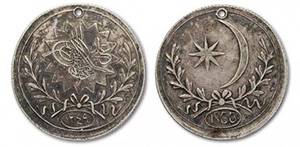
A major diplomatic victory, unlike the Western partners, was undoubtedly won by Russia. Long negotiations with Emperor A.F. Orlov’s special envoy led to 26 signing on June 1833 a defensive treaty between the two empires, called Unkiar-Iskelesiysky, was the name of the base where the Russian squadron was stationed. The highlight of this agreement was a special secret article, according to which Turkey pledged not to allow any warships of any third power into the Black Sea. Unfortunately, the question of the free passage of Russian warships through the Bosphorus and the Dardanelles was still open. 28 June 1833, the Russian squadron, having taken the troops on board, left the Bosphorus and, under the command of Vice Admiral Lazarev (he received a promotion for the Bosporus Expedition), headed for Sevastopol.
The conflict with Muhammad Ali, which almost ended in a state collapse, vividly demonstrated to the whole world the weakness of the rapidly decreasing Ottoman Empire. From the subject of political relations, she gradually became their object, the subject of bargaining. The growing rivalry between the Western powers and Russia for the right to be the main healer at the bedside of the “sick man” (and the once mighty Brilliant Porto was called more often) eventually led to the bastions of Sevastopol, Balaklava and Malakhov Kurgan. But that's another story.
Information